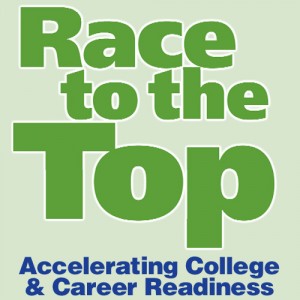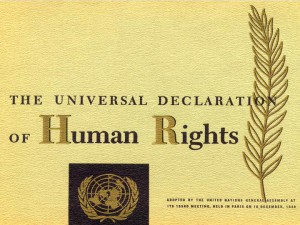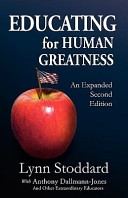 I have never tried this thing of blogging each day from an event. My typical blog piece requires about four to twelve hours of work writing or at least staring at the computer thinking what to write. Tonight I figure I have about an hour to pound this out.
I have never tried this thing of blogging each day from an event. My typical blog piece requires about four to twelve hours of work writing or at least staring at the computer thinking what to write. Tonight I figure I have about an hour to pound this out.
This my third AERO conference, my strategy has evolved to focusing on connecting with people, not so much in attending workshops for the content of those sessions. Reconnecting with people I already know, plus making new connections with a few people that I don’t already know that I can include in my circle. Also with Sally in attendance as well, I really wanted to introduce her to a handful of people that I have either met at previous conferences or interacted with through the phone or the Internet on various projects or discussions.
Continue reading →
Tag Archives: schools
Day 0 – On the Train to the AERO Education Conference
 When it was announced that this year’s Alternative Education Resource Organization (AERO) conference was going to be in Portland OR, I decided I would go, and rather than fly to Portland, I would take the train up the coast. I had journeyed back east to previous AERO conferences in 2007 and 2008 in Albany NY, but had not been able to attend the past two years. And this go round, Sally decided she would come too.
When it was announced that this year’s Alternative Education Resource Organization (AERO) conference was going to be in Portland OR, I decided I would go, and rather than fly to Portland, I would take the train up the coast. I had journeyed back east to previous AERO conferences in 2007 and 2008 in Albany NY, but had not been able to attend the past two years. And this go round, Sally decided she would come too.
So our train was three hours late arriving in Van Nuys where we boarded, but once we were on the train and soon headed up the central California coast, it was “all good” as they say. So we spent the night in our cozy little sleeping compartment overnight and are now in northern California approaching Mount Shasta. As a means of transportation, the train is not about just getting from point A to point B, but enjoying the journey.
Continue reading →
A Tale of Two Education Reformers
It was Horace Mann and his lesser known comrades in the 1830s that launched the United States into the mode of top-down education “reform” initiatives by the meritocratic and entrepreneurial elite. The legacy today is perhaps our continuing and stubbornly OSFA (one size fits all) public school system. Frederick Taylor carried that torch in the late 19th Century applying his “Scientific Management” principles to public schools. His legacy is timed classes, bells and forms in triplicate. John Dewey continued the “reform” tradition in the early 20th Century with his “Democracy and Education” and focus on civics and social studies. And in the 1990s Rod Paige brought the country his “Houston Miracle”, and its legacy, No Child Left Behind and high-stakes standardized testing.
Certainly no consistent political agenda among the four… or is there? Mann and Dewey would be considered political progressives in their day, and Taylor and Paige conservatives. But they all believed in the top-down, rather than bottom-up approach to educational governance. That is, education was a compelling state interest and therefor the state should call the shots and stage-manage every child’s education.
Today there is no shortage of members of the meritocratic elite who try to make their mark and write their legacy as education “reformers”. Bill Gates comes to mind as the exemplar, along with numerous other individuals and foundations that plow millions of dollars into studies and programs to attempt to rethink, reinvent, and revitalize our public schools. But nearly always from that top-down perspective, looking for some “best practice” that can be turned into a single grand new scheme for educational transformation. Continue reading →
The Myth of the Common School
 There are at least two misnomers out there today about the beginnings of the U.S. public school system…
There are at least two misnomers out there today about the beginnings of the U.S. public school system…
1. That it was set up to to bring basic instruction in reading, writing and arithmetic to the children whose families did not have the means to hire tutors or send their children to private schools.
2. That it was set up on the factory model to train workers to work in the proliferating factories of the beginnings of industrialism in the first half of the 19th Century.
Though our public schools eventually adopted the “three R’s” and the factory model of timed classes, bells and such, those were later “innovations”.
The reality of the beginnings of U.S. public schools is quite different, and a fascinating book to read on this subject is The Myth of the Common School, written by Charles Leslie Glenn Jr. in the mid 1980s. The “Common school” being the original name given to the universal one-size-fits-all public schools envisioned and developed by Horace Mann and other education reformers of the early 19th Century.
Continue reading →
Under-Imagined and Over-Taught?
 We seem to have become a culture obsessed with programming our kids for success through instruction rather than acknowledging that real learning is mostly about exploration and discovery which includes a lot of the dreaded “F” word… failure. The juxtaposition of two items in the news this week, along with the reappearance of a J.K. Rowlings speech from 2008, speak to this obsession and good reasons to overcome it in favor of a more imaginative learner-driven paradigm for learning, to achieve the right dynamic between imagination and instruction in the human developmental process.
We seem to have become a culture obsessed with programming our kids for success through instruction rather than acknowledging that real learning is mostly about exploration and discovery which includes a lot of the dreaded “F” word… failure. The juxtaposition of two items in the news this week, along with the reappearance of a J.K. Rowlings speech from 2008, speak to this obsession and good reasons to overcome it in favor of a more imaginative learner-driven paradigm for learning, to achieve the right dynamic between imagination and instruction in the human developmental process.
The first news item is recently published research looking at the earliest periods of human development, showing that instruction limits the imagination applied to play and learning among young children.
Continue reading →
School Based on Universal Human Rights?
 FYI… this piece is way more initial rumination and not yet a polished argument… but here goes!
FYI… this piece is way more initial rumination and not yet a polished argument… but here goes!
Israeli teacher Yaacov Hecht, one of the founders of the “democratic education movement” says that he was inspired to reinvent schools in a democratic paradigm, a paradigm that “sees as its main goal the education towards human dignity” as set forth in the 1948 United Nations Declaration of Human Rights. In his book, Democratic Education: A Beginning of a Story, Hecht says…
Democratic education considers the protection of human rights in school as a necessary and basic condition for the beginning of work on education towards human dignity… The basic assumption of a democratic school is that a young person, living in an environment which respects him and protects his rights, will know in the future to protect human rights in all three spheres…
One – “my” and “our” human rights
Two – the rights of “the other” or “the different”
Three – the rights of the whole of humanity
Before I even attempted to plunge into Hecht’s educational philosophy, I thought I better read the thirty articles in the UN Declaration myself, which I did. I think we tend to not apply principles of human rights always to children because… they’re children. If we love them, feed them, educate them and keep them safe, that’s all the human rights they could possibly want or need, right? But then trying as always to think outside the box, I think there are at least seven of the principles called out in the UN Declaration that I find particularly applicable youth and education and offer an interesting perspective on our current prevailing public education model and the possibilities for a new more democratic approach.
Continue reading →
Educating for Human Greatness
 The title of this piece is the goal of my friend Lynn Stoddard, who has worked for over 50 years as an elementary school teacher, principal and consultant. His goal is to elevate the profession of teaching and inspire teachers to truly facilitate the development of a young human being rather than merely instruct them on standardized curriculum so they can pass the tests. I am aware of no greater contemporary champion for a holistic approach to teaching and education consistent with the great education innovators of the 20th Century like John Dewey, Waldorf founder Rudolph Steiner, and Maria Montessori.
The title of this piece is the goal of my friend Lynn Stoddard, who has worked for over 50 years as an elementary school teacher, principal and consultant. His goal is to elevate the profession of teaching and inspire teachers to truly facilitate the development of a young human being rather than merely instruct them on standardized curriculum so they can pass the tests. I am aware of no greater contemporary champion for a holistic approach to teaching and education consistent with the great education innovators of the 20th Century like John Dewey, Waldorf founder Rudolph Steiner, and Maria Montessori.
From chapter 1 page 1 of his book Educating for Human Greatness, Lynn frames the challenges for the profession of teaching in the current US educational context…
In 1983 a National Commission on Excellence in Education issued a “Nation at Risk Report” and set in motion a series of government imposed reforms, all based on a false goal: student achievement in curriculum. One of these reforms, “No Child Left Behind,” put extra pressure on teachers to ignore the diverse needs of students and, instead, standardize students in reading, writing and math. More recently the U.S. Department of Education has installed a set of national standards for student uniformity. Subject matter specialists, along with major influence from business and industry, have decided what all students should know and be able to do at each grade level. Tests are administered to assess student learning of the prescribed material. In some cases the tests are used as an assessment of the quality of teaching. This top-down, misguided pressure is evidence that public school teaching is not regarded as a profession in our society.
My Take on Learning in the 21st Century
 In my previous piece, “What is 21st Century Learning?” I tried to put a context around eleven replies to that question from people identified by Ed Week magazine as thought-leaders in the business of education. That context is the transition in American society, and the wider world (case and point is Egypt and the Arab world in the past month), from external authority to the shared authority of a circle of equals. At this time in our human history, I can think of no more profound thread in our cultural evolution.
In my previous piece, “What is 21st Century Learning?” I tried to put a context around eleven replies to that question from people identified by Ed Week magazine as thought-leaders in the business of education. That context is the transition in American society, and the wider world (case and point is Egypt and the Arab world in the past month), from external authority to the shared authority of a circle of equals. At this time in our human history, I can think of no more profound thread in our cultural evolution.
In keeping with this developmental thread, it seems appropriate that I go beyond commenting on the thoughts of identified educational authorities on the question, “How Do You Define 21st-Century Learning?”, and put forward my own as a fifty-five year old person and parent of two now young adult children, who has done (and continues to do) his share of formal and informal (that is real life) learning.
Continue reading →

